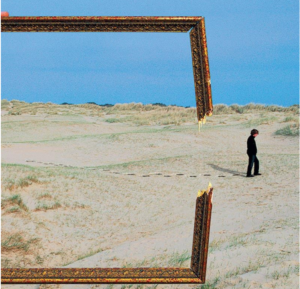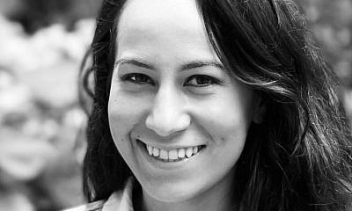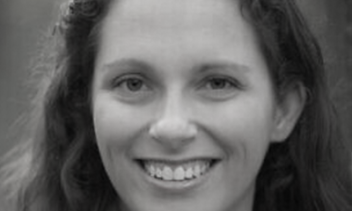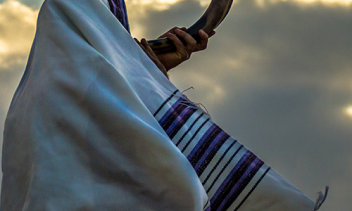
Who are the Jewish people? In this week’s Weekend Reader, we look to some of the great Jewish thinkers from past and present to better understand this weighty question. Listen to Franz Kafka, Leora Batnitzky, Aaron Zeitlin, and Rav Aaron Lopiansky in a discussion (of sorts) about peoplehood and use this opportunity to think about your own connection with this idea-obsessed people. These are questions that can be asked and can’t fully be answered, but along the way we hope to learn something nonetheless.
In this reader, we first provide an overview to Jewish peoplehood, followed by our reflections from Rav Lopiansky’s discussion with 18Forty. Join us on the journey of peoplehood, and reach out with your responses and reflections.
Overview to Jewish Peoplehood
In January 1914, a deeply conflicted writer and Jew by the name of Franz Kafka, then 31, wrote in his diary:
What have I in common with Jews? I have hardly anything in common with myself…
Kafka was not the first to question the complicated nature of Jewish identity, nor will he be the last, but his question articulates the complexity of dealing with Jewish personhood, let alone Jewish peoplehood. How can we talk about a characteristic of a people, when an individual is so complicated?
Yet the question must be asked—what is Jewish peoplehood? Leora Batnitzky, in the beginning of her How Judaism Became a Religion, questions: “Is Judaism a religion? Is Jewishness a matter of culture? Are the Jews a nation?” Or perhaps is Judaism a race, an ethnicity? For much of Jewish history, the joint questions of Jewish personhood (identity) and peoplehood went unasked. Being Jewish meant living Jewishly, often without choice: in Jewish communities, with taxes and politicians chosen by Jews, and living with Jewish ritual. With the advent of modernity, Jews began to emerge from the cloistered Jewish conclaves of Europe and were forced to confront their own Jewishness distinct from communal affiliation. Thinking about what it means to be a Jewish person as well as a Jewish People writ large are questions that strike deep in the heart of Jewish thought and life in recent centuries.
This question is particularly important now. This year, as the Jewish communities of the world were hit with a similarly jarring encounter with this dynamic of modernity, we have witnessed one of the most dramatic shake-ups of Jewish communal structures of recent history. Jewish communal life was once placed in the four stable walls of the institution, with prayers in synagogues and lectures in study halls and conversations in universities. In 2020, everything has shifted to the home, or perhaps to the internet. In the wake of these seismic shifts in the nature of religious practice, and the fragmenting of the institutions that bring people together, thinking about Jewish peoplehood is deeply relevant.
There are two operative questions; What does it mean to be a Jewish person, and what does it mean for the Jewish people to be a people? Whether these are two distinct questions or two threads woven together runs to the heart of these questions. What is the Jew without the Jewish community? Equally important—what is the Jewish community without the Jew?
Rabbi Joseph B. Soloveitchik (1903-1993), whose oeuvre contains some of the most poignant meditations on the matter of Jewish personhood and Jewish peoplehood, thinks through two layers of Jewish peoplehood in his magisterial Kol Dodi Dofek: the people of fate and the nation of destiny. In Egypt, persecuted from without, the people of fate were forged:
What is the Covenant of Fate? Fate signifies in the life of the nation, as it does in the life of the individual, an existence of compulsion. A strange force merges all individuals into one unit. The individual is subject and subjugated against his will to the national fate/existence, and it is impossible for him to avoid it and be absorbed into a different reality. The environment expels the Jew who flees from the presence of God, so that he is awakened from his slumber, like Jonah the prophet, who awoke to the voice of the ship’s captain demanding to know his personal national-religious identity.
The historical loneliness of the Jew percolates from a feeling of compulsive fate. He is as alone in his life on earth as in his death.
In the crucible of compulsion, “Judaism and withdrawal from the world are synonymous,” and there is the “singular, inexplicable phenomenon of the individual clinging to the community and feeling alienated from the outside world.” Encountering the inescapable fate of shared suffering pushed the Jewish people to become a people of loving-kindness, drawn to each other and away from the world at the same moment. This is the people of fate. The great Yiddish poet, Aaron Zeitlin, spoke deeply to the inescapable nature of the people of fate in his poem “Being a Jew:”
Being a Jew means eternally running to God
even if one is a deserter;
awaiting to hear any day
(even if one is a heretic)
the sound of the Messiah’s shofar
Being a Jew means not being able to get away from God
even if one wants to;
being unable to stop praying
even after all the prayers
even after all the even thoughs.
Consider now the second aspect, the nation of destiny, which emerged from the Covenant of Sinai:
In the life of the people (as in the life of an individual), destiny signifies an existence that it has chosen of its own free will and in which it finds the full realization of its historical existence. Instead of a passive, inexorable existence into which a nation is thrust, an Existence of Destiny manifests itself as an active experience full of purposeful movement, ascension, aspirations, and fulfillment … because of its longing for an enhanced state of being, an existence replete with substance and direction…
The life of destiny is a directed life, the result of conscious action and free will.
Put more simply, there is one aspect of Jewish peoplehood that is created by shared circumstance, the history of persecution and traumatic cultural memory. There is another aspect of Jewish peoplehood that is engendered not by persecution, but purpose; not by fate, but by destiny, by choice. It is this type of peoplehood that creates what the Rav deems the Jewish nation:
[God] transformed the “people” – an amalgam bereft of direction and purpose – to a “nation,” a term that signifies a distinct communal profile, a national physiognomy, as it were. The people of loving-kindness was elevated into a holy nation. The basis of shared destiny is the sanctity that is formed from a distinctive existence.
These two qualities are overlapping and interwoven, and each offer a perspective into this question of Jewish peoplehood. Each layer informs the complex interplay between the individual Jew and the Jewish community, and between the Jewish community and the world. Is Judaism tribal, particularist, ethnocentric? In engaging too deeply with the particular past of the Jewish people, do Jews run the risk of fossilization, missing the universalism that is part of the present and future of peoplehood?
Jewish identity, on the individual or national level, is not so easily defined. In thinking through this dynamic, we seek to explore the ways Jewish peoplehood finds expression, and the directions in which it is moving. Rabbi Abraham Joshua Heschel (1907-1972), in his God in Search of Man, warns us about falling for the easy trap of these definitions:
Understanding Judaism cannot be attained in the comfort of playing a chess-game of theories. Only ideas that are meaningful to those who are steeped in misery may be accepted as principles by those who dwell in safety. In trying to understand Jewish existence a Jewish philosopher must look for agreement with the men of Sinai as well as with the people of Auschwitz.
If Heschel articulates well the danger of easy explanations, he also gives us words for the power of thinking about the Jewish past and present, the perfect words with which to end this introduction. These words frame 18Forty’s engagement with the question of Jewish peoplehood, and what we hope we might learn:
Our faith may be strained but our destiny is anchored in the ultimate. Who can establish the outcome of our history? Out of the wonder we came and into the wonder we shall return.
Join us in thinking about Jewish peoplehood, as we think about the wonder of our past, the wonder of our future, and the moment we occupy as a people today.
Rav Aaron Lopiansky: What Tribes Do You Contain Inside
How can one person love a whole nation? And how can the love for a nation be a textured love, an appreciation that runs deeper than ethnocentrism or love of the similar? In order to connect to the nation without, one has to embrace the nation within.
Rav Aaron Lopiansky joins 18Forty to think about the past, present, and future of the Jewish people. Much of Rav Lopiansky’s perspective emerges from his communal positioning – as a Rosh Yeshiva, author, and thinker, much of his writing speaks to those struggling at the boundaries of the right-wing and modern world. His Ben Torah for Life is an erudite work aimed at those leaving the Yeshiva for the workforce, a shift in roles that necessitates a shift in meaning structures. This week, we are considering Rav Lopiansky’s understanding of the many roles we all occupy, and how this can inform one’s appreciation for the whole Jewish people.
We are all built of different qualities and components, pastiches of the characters of the entire Jewish people. The Jewish people embody unity within variety, in the many faces of lived Jewish experience that comprise the Jewish people, just as the Jewish person embodies variety within unity, in the many different aspects to each person’s lived Jewish experience.
It is in this context that Rav Lopiansky meets Jewish peoplehood. Rav Lopiansky considers the twelve tribes an important symbol for the roles we all have. Each tribe has a particular portion of Biblical Israel, and with it a goal, a shared characteristic, or role.
In his Ben Torah For Life, he describes the different personalities that comprise the Jewish people:
Each tribe has a very unique personality with its own set of attributes and talents, yet all of them together – and only together – are Klal Yisrael. Thus, while each tribe is a world unto itself, each is irreplaceable as a member of the whole. For instance, the tribes of Shimon and Levi were most outspoken in their condemnation of evil, whereas the tribe of Dan reached out to the stragglers to bring them back into the fold. These approaches are polar opposites of each other, yet Klal Yisrael is a nation only if it contains both an element of frank and searing condemnation of wrongdoing and also the ability to reach out to the furthest of the stragglers. So too, all the other shevatim have their unique and sometimes diametrically opposing personalities.
Nevertheless, each and every tribe had a core personality of “Yisrael”, a nation devoted to G-d. in addition, each one had a unique facet that was specific to that tribe … Each and every … tribe oriented its particular attribute towards the center point of dedication to Hashem.
As such, the history of the Jewish people has seen a fair share of inter-tribal disputes, sometimes with tragically violent consequences. This conflict continues to occur on all levels of Jewish society, as people and groups of people clash over values.
In order to embrace the Jewish people, in all their uncomfortable diversity, Rav Aaron Lopiansky urges us to embrace the diversity that lies within each of us:
These descriptions hold true of each individual’s personal development as well. That a person consists of many different facets of personality, and that they all must work together for the common goal to be realized, is widely understood. However, the fourth dimension of a person, i.e. time, is poorly understood. Each person travels through different periods of life: childhood, teenage years, young adulthood, marriage, parenthood, etc. Each of these stages is another stratum of the total person. Each period has its own focus and challenges, and each becomes a unique contribution to the totality of the person. There are correspondingly different values to be stressed in each of the different periods, such that together they present “adam” in totality.
Much of what is so challenging about embracing the contradictions of a nation is also true for embracing one’s own contradictions. In order to appreciate the complexities of the nation, one learns to appreciate the complexities of the person. James Joyce, the Irish novelist and poet, put it this way:
For myself, I always write about Dublin, because if I can get to the heart of Dublin I can get to the heart of all the cities of the world. In the particular is contained the universal.
The presumption behind this idea of the universal heart within the particular is based on the understanding that the deep core of human experience transcends difference.
Becoming aware of the great many voices of Jewish experience present within each and every one of us is intimately tied to developing a greater historical consciousness. As long as one’s lens of history is narrow, so too will their perspective on Jewishness and Jewish people be narrow. Rav Lopiansky is a believer in the importance of developing such a real historical consciousness. In an article for Mishpacha titled “Sometimes Mashiach is Not the Solution,” Rav Lopiansky critiqued the sort of popular messianism that is prone to cropping up in challenging times for lacking a historical perspective:
We need to teach our children history. And that history needs to include much more than dry names and dates and stories of gedolim. They need to have an accurate understanding of the experiences of the Jewish communities of each generation — the daily life, the hardships, the challenges, the successes, and the wounds. The pasuk implores us to “contemplate the years of each generation.”
This historical awareness forestalls one’s ability to rely on easy conceptions, and puts a premium on recognizing the past, and the present, in a beauty basked in the warm light of complexity.
This point is particularly important given the current debate around the boundaries and opportunity of identity—in a fragmented world, is it possible to find the universal in the particular? Can deep engagement with one’s own cultural experience engender a deeper appreciation for other cultures, or do the lines of difference between one’s culture and others’ demand demarcation? Terrence, the Roman African slave turned senator, famously said “I am human, and I think nothing human is alien to me.” For Terrence, engagement with the realest stuff of the human experience necessarily grants one intimacy with the whole of the human experience.
As our roles change over the course of our life, the ways we characterize our own spiritual success needs to change, adapt, mature. Rav Lopiansky, in his deep belief in the lifelong project of Jewish education, urges us in his conversation with 18Forty to expand our definition of greatness to allow for this maturation process:
Rav Aaron Lopiansky: We have to begin to define a big person on personal terms. In other words, to be able to understand that if you’re able to control your actions through your ideals … you’re a big person. If you’re able to do things that you know you should do, even though you don’t feel like doing them, you’ve become a bigger person. If you don’t feel a need to publicize yourself and you’re happy with what you’re doing … even if no one knows about it, means being a very good person…
It’s a lot of hardship and sacrifice. But I know what I sacrificed for and I know what I accomplished. I’m a big person … I know big things. I’ve gained control of myself. At least I know what it’s for.
This is a greatness we can all aspire towards, we should all aspire towards. This is a greatness of spirit, a depth of being independent of one’s stage or station in life.
Rav Aaron Lopiansky speaks the language of the particular; much of his insight is situated for those in the Yeshiva-oriented Jewish communities, but his thought is important for all. Listen to Rav Lopiansky to think about differentiating education for all ages, the challenges facing the Jewish people in 2020, and his thoughtful commentary on Jewish life today.









